What You Need to Know About Water Heater Replacement Cost Factors
Upgrade your hot water system with ease by understanding the factors that influence the cost of a replacement. Whether you're in need of an electric or gas water heater, making an informed decision on your investment is vital. Discover the potential expenses associated with this essential appliance and ensure your home stays equipped with a reliable and affordable hot water solution.

When do you need to replace a water heater?
Is your hot water supply unreliable? It might be time to upgrade your water heater. Unsure whether a replacement is necessary? Check out these signs to help make your decision:
Age: If it's been 8-12 years, it might be time to say goodbye.
Corrosion: If you see rust or damage, your tank probably needs replacing.
Leaks: Some can be fixed, but major leaks usually mean it's time for a new unit.
Decreased hot water supply: If your showers are getting shorter, your water heater might be to blame.
Don't wait for a plumbing disaster! Take charge of your home's hot water needs now. Don't leave it to chance.

What affects the cost of replacing a water heater?
The cost of replacing a water heater can vary for several reasons, including:
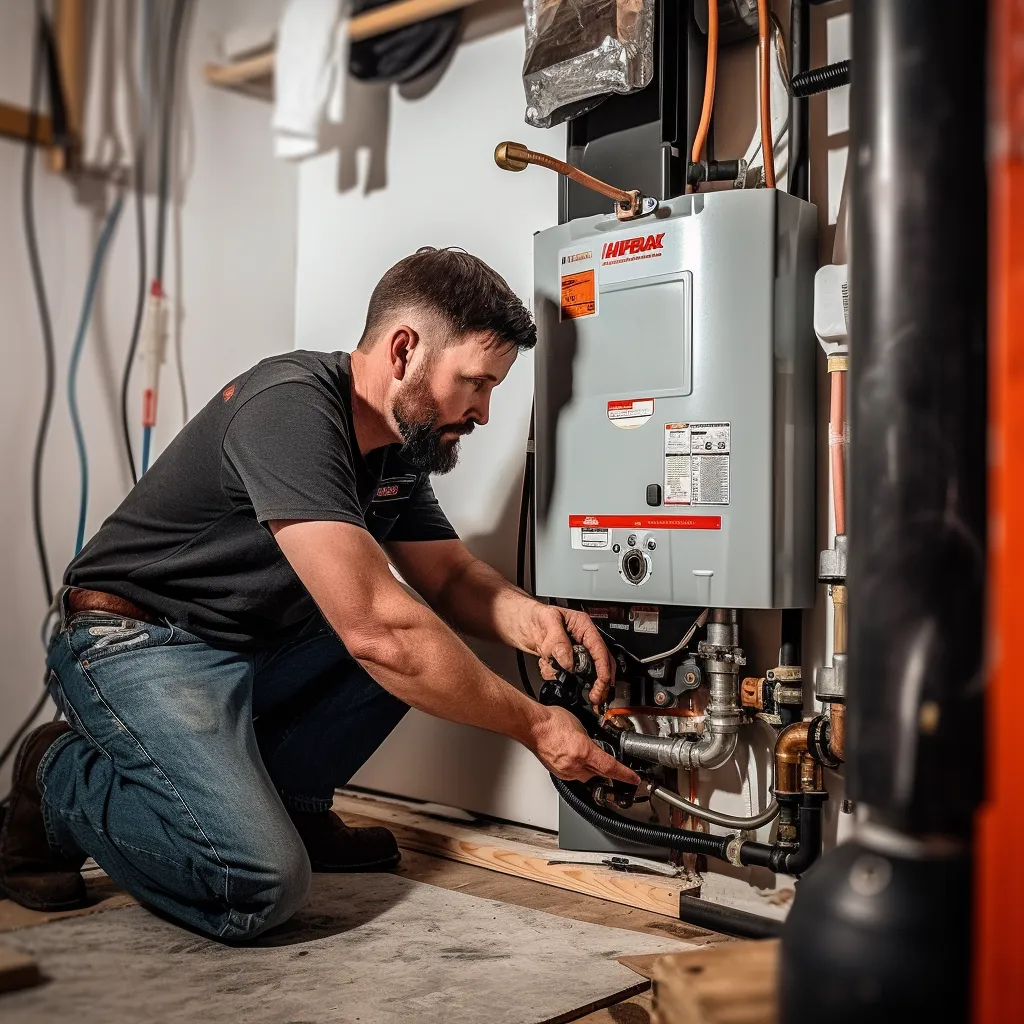
Type: Some models have higher prices due to their size or energy efficiency, regardless of gas or electricity use.
Size: Bigger units come with a bigger price tag.
Extras: Want additional features like automatic shutoff valves or pressure relief valves? Be ready to pay more.
Installation: Project scope, extra materials, and new pipes or venting systems can bump up replacement costs.
Labor: Professional plumbers will either charge hourly or offer a flat fee for their labor.
Permits: Local building codes may require permits to start work.
Location: Availability of technicians and regional cost of living could also affect your bill.

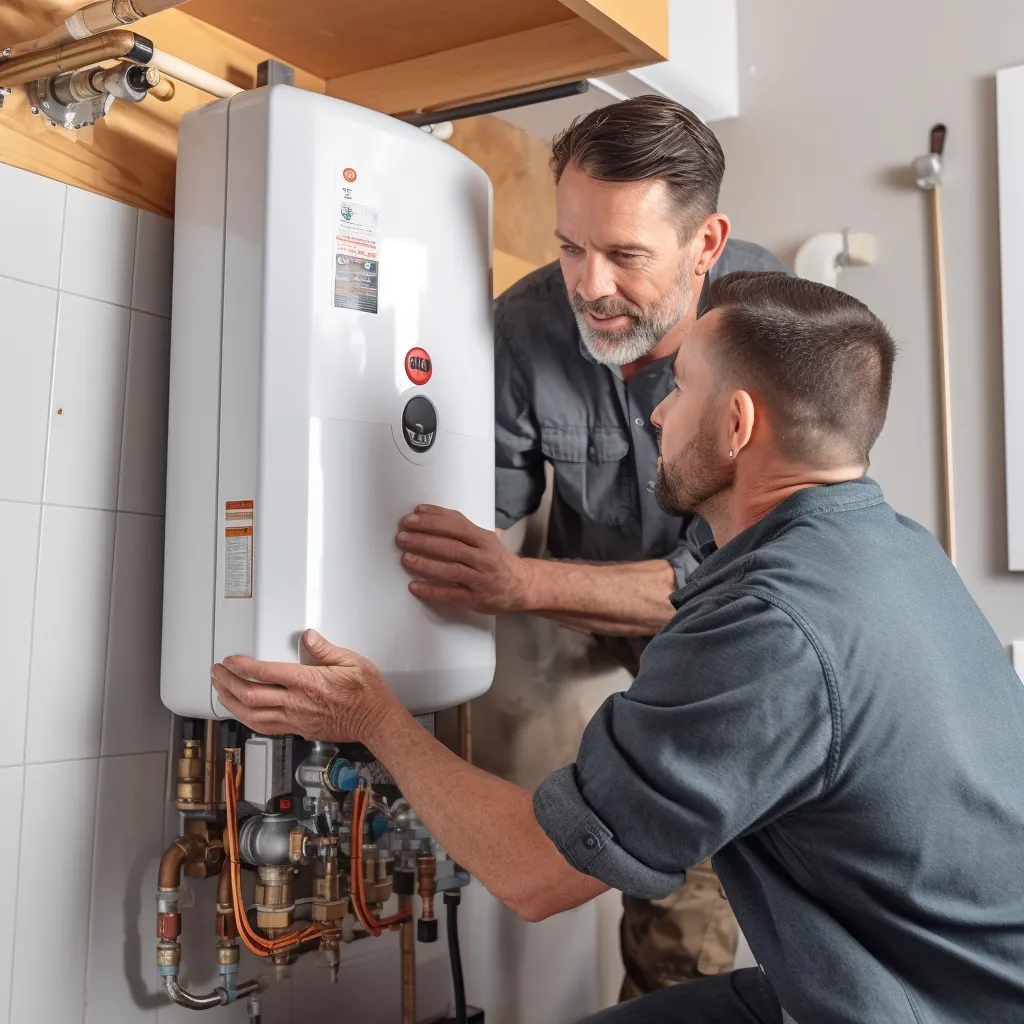
Benefits of replacing
an old water heater
with an energy-efficient one
Investing in an energy-efficient water heater has several benefits:
Achieve savings on your utility bills by upgrading to an energy-efficient water heater. With consumption reduced by half compared to traditional models, this choice is financially wise.
Not only are they durable, but energy-efficient water heaters also generate a more comfortable hot water flow by maintaining ideal temperatures for your convenience.
This eco-conscious option reduces energy consumption, representing a responsible choice for both the environment and your home.
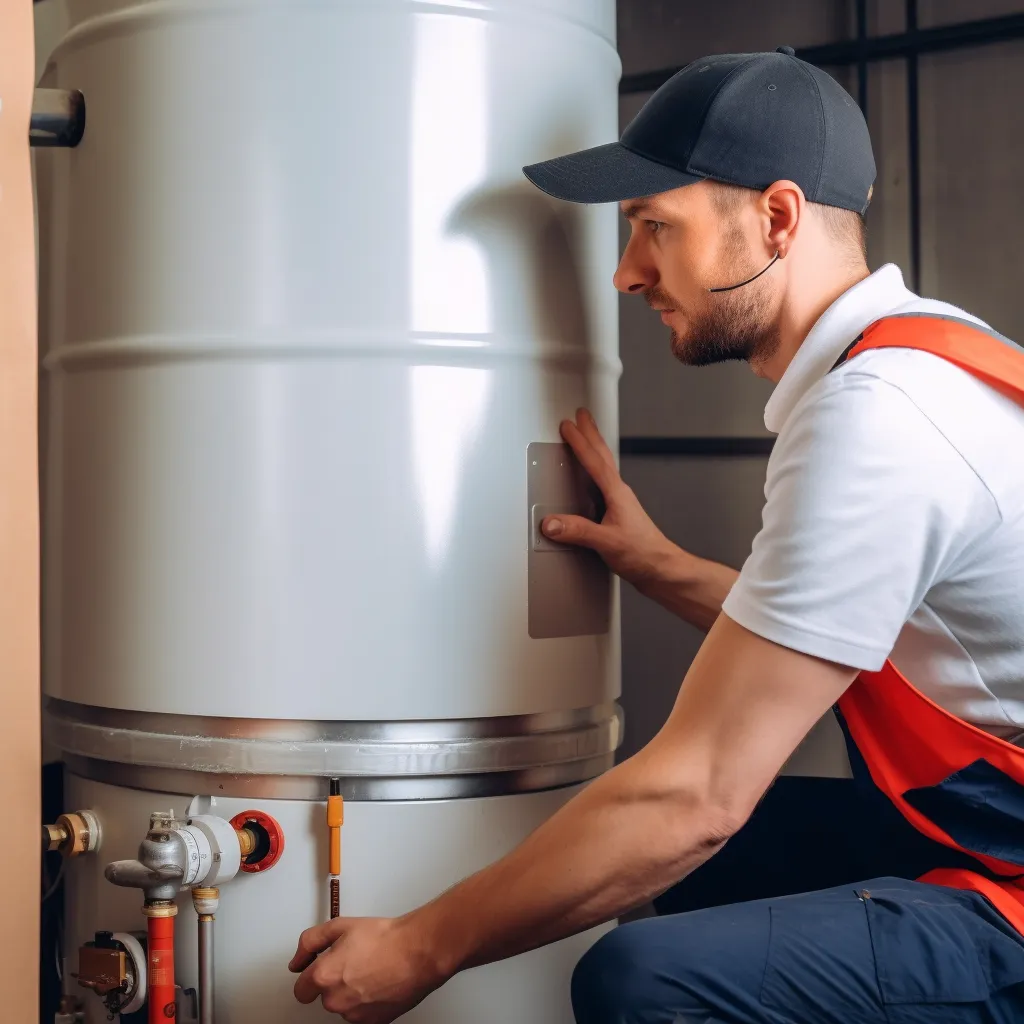
How to determine the size
of the water heater you need?
Don't pick the wrong size for your hot water heater - it's a big deal! Going too small means shivering through icy showers, but going too big means wasting energy and money. Keep these factors in mind when selecting the size:
Choosing the right water heater size is crucial for your household's needs. The larger your household, the bigger the water heater tank you will need.
Consider your fuel source options too. Electric water heaters typically come with smaller tanks compared to gas-powered ones.
If you have multiple uses for hot water, like laundry, you may want to opt for a bigger tank.
Living in colder temperatures may also impact your decision.
It's recommended to choose a larger tank to ensure hotter water.

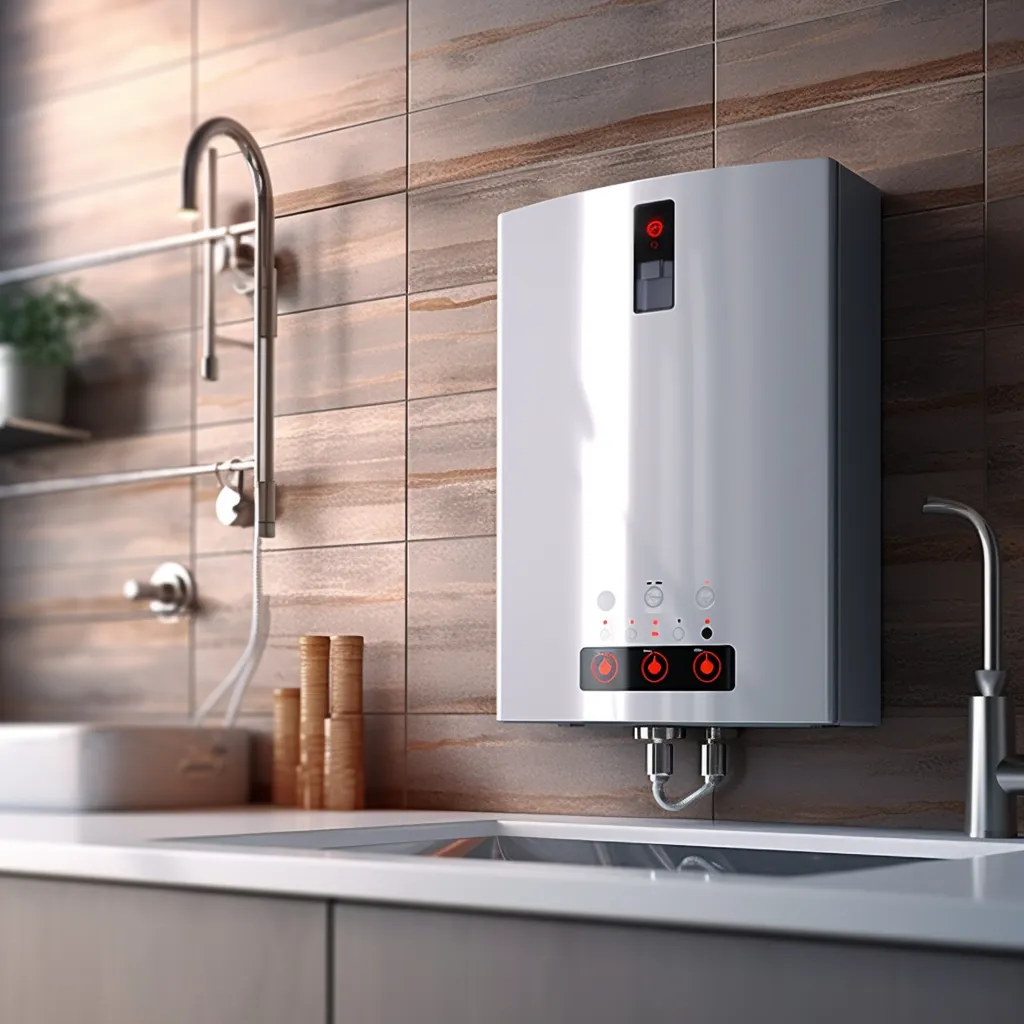
Research the different types of water heaters
Selecting the right water heater for your home can be overwhelming. Luckily, there are several options suitable for your needs. Traditional tank models store hot water, while tankless options only heat water when needed, reducing your energy usage. Hybrid models combine the benefits of both and are more efficient than traditional tank heaters. Consider eco-friendly solar water heaters or heat pump models that use the power of the sun or air to warm your water. Let us help you review these choices and find the ideal water heater for your residence.
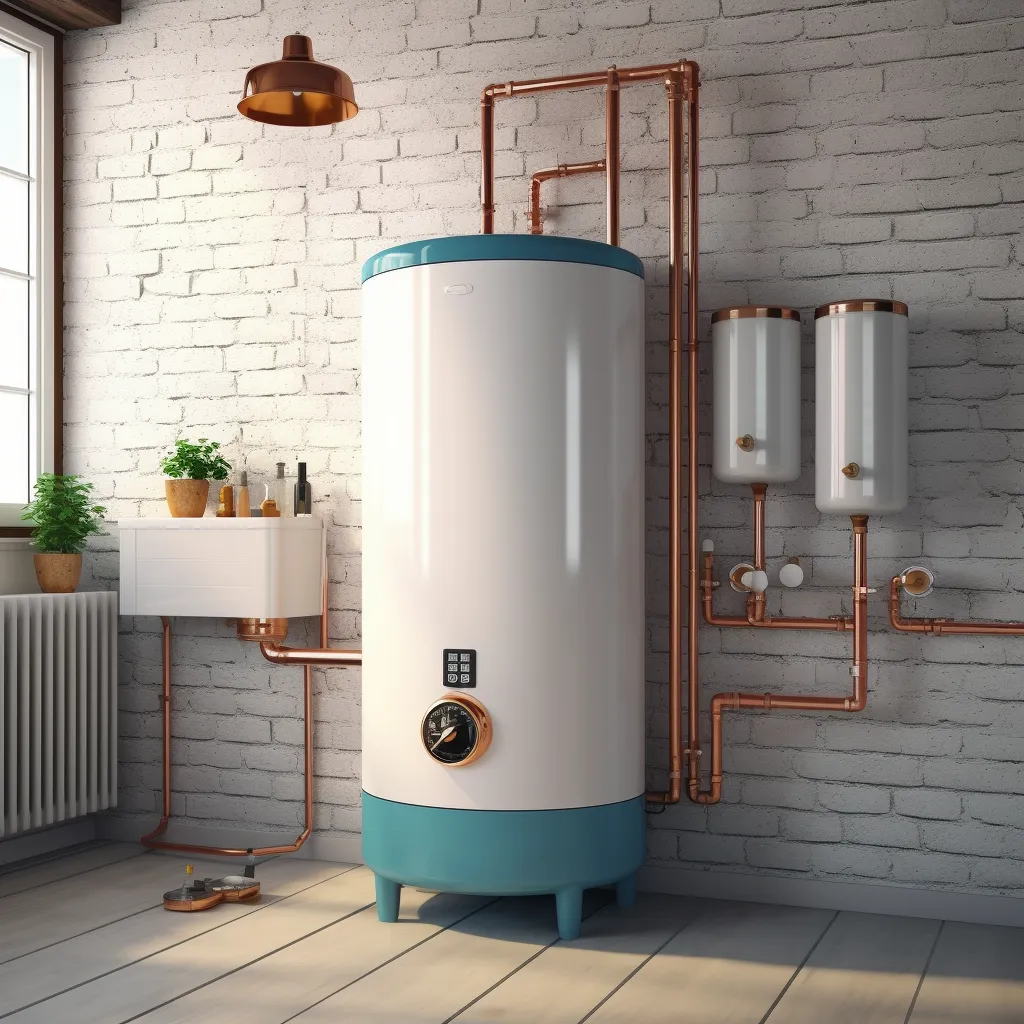
Cost of each type of water heater
Replacing water heaters can be a challenging task that comes with a hefty price tag. The final cost depends on the unit selected.
Traditional tank heaters are cheap to buy but expensive to run and replace.
Tankless heaters cost more upfront but last longer and save on energy bills.
Heat pump heaters are a good balance of price and long-term savings.
Solar heaters benefit the planet and your wallet in the long run.
Smart heaters offer convenience and energy savings through remote control.
Condensing heaters are super efficient, but at a high cost.
When choosing gas or electric, consider that gas is cheaper upfront, but electric can be more efficient.
Direct vent heaters start at $500, while power vent models range from $700 to $1,200.
Cost of installation and ongoing maintenance
for each type of water heater
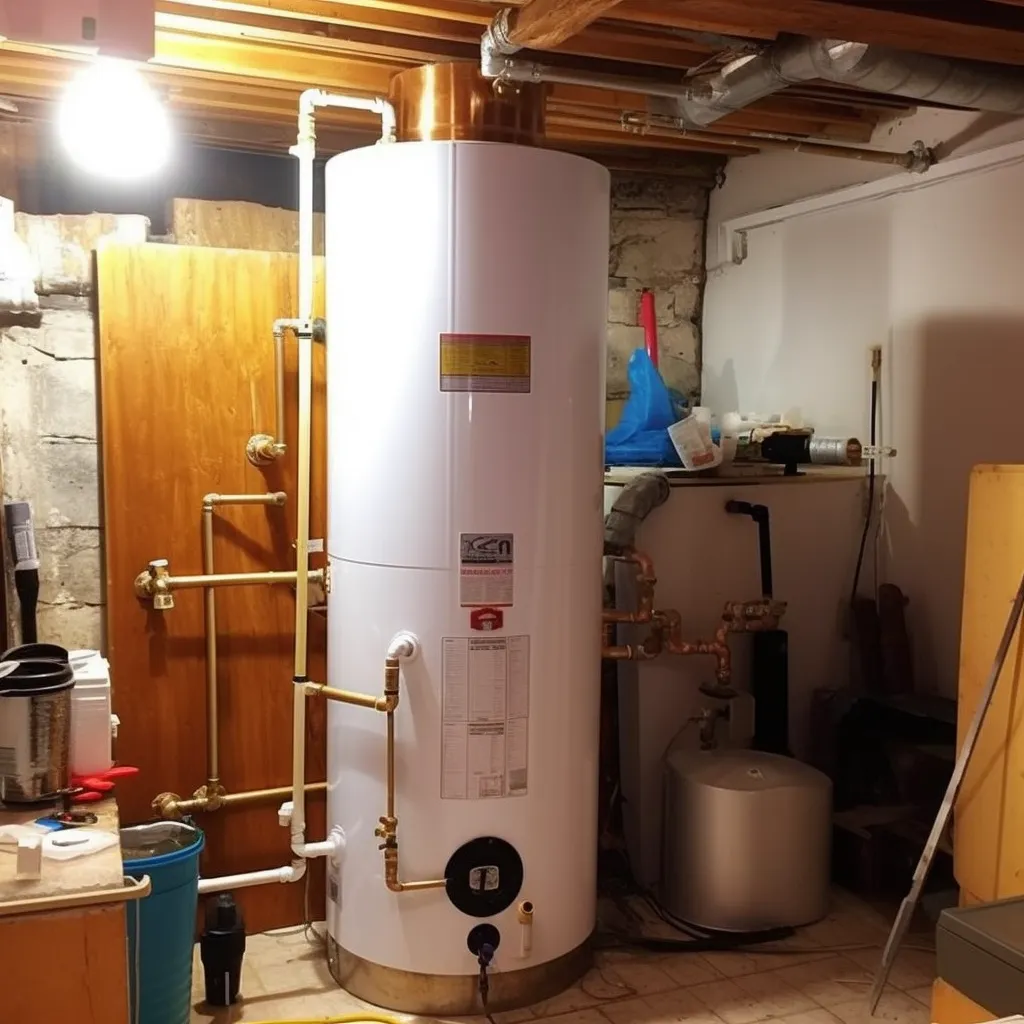
Choose your water heater carefully by taking into account installation, maintenance, and fuel costs. With tanks, installation is cheap but maintenance expenses can pile up over time. Tankless heaters, although initially expensive to install, are cheaper to maintain, thus yielding long-term savings. Heat pump heaters have similar installation costs to tankless heaters but require slightly more maintenance. While solar heaters are costly to install, they must be connected to your home's plumbing system.
When selecting a water heater, it's critical to take into account fuel costs. Gas heaters are typically more cost-effective than electric models because of lower energy expenses. Additionally, not all fuel sources are available everywhere you go.

How to get an accurate estimate
for the cost of a water heater
Discovering the total cost of water heater replacement, including installation, can be a challenging task without conducting some research.
Selecting the right water heater size and type doesn't have to be complicated. Simply consider the number of people in your household and how you use hot water.
Upgrade your plumbing system by checking out local companies and requesting quotes.
Consider all expenses, including water heater price, warranties, and necessary add-ons.
Tips to save money on installing a new water heater
Here are some tips that can help you save money on a new water heater:
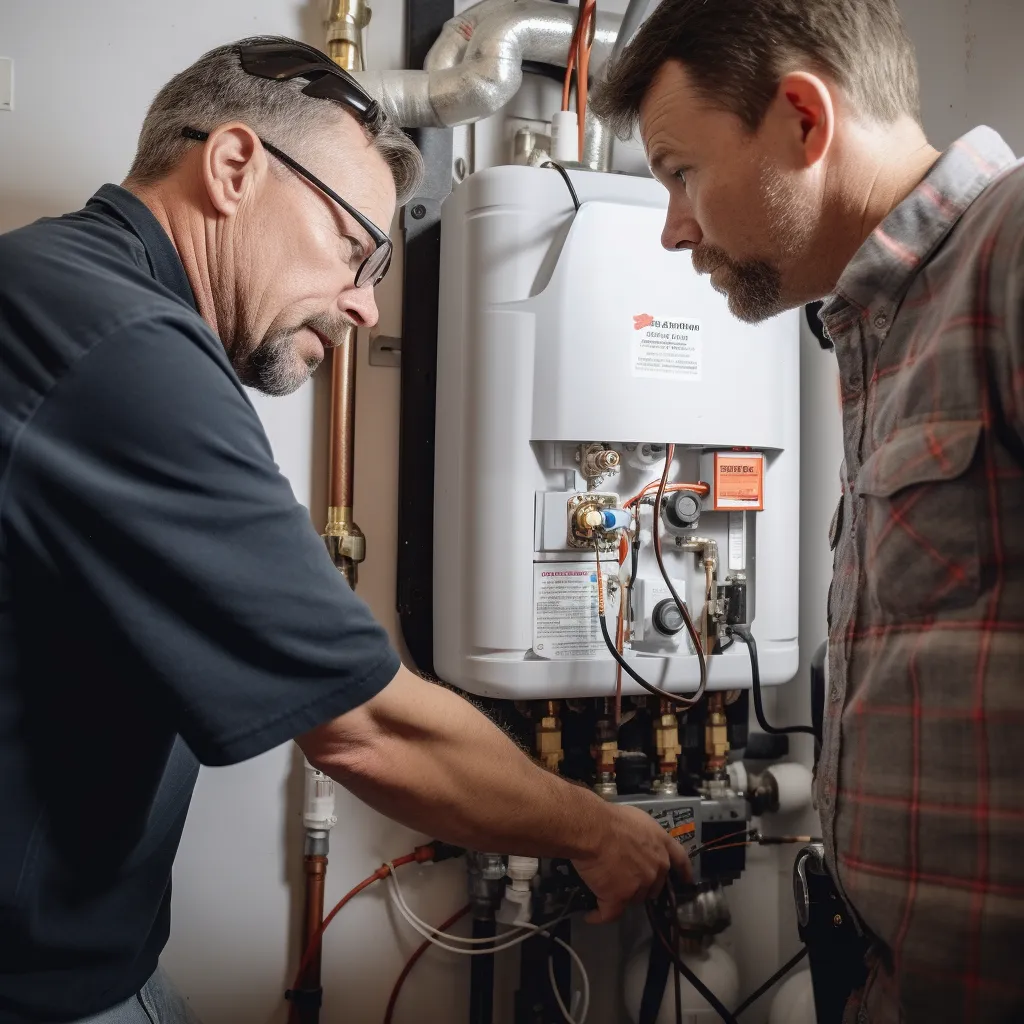
Shop around and compare prices from different retailers and plumbing companies.
Check if your local utility company offers rebates or tax credits.
Invest in an energy-efficient model, even if it costs more upfront.
Think about the total cost of ownership, not just the initial price.
Look for bundle deals and take advantage of manufacturer warranties.
Be careful when buying a used water heater - inspect it closely first.
Remember that installing a water heater can be difficult, so it's best to hire a professional to ensure it's done right.
What to do if you need services
to replace your water heater
Is your water heater giving up on you? Don't worry, we've got you covered. A reliable and knowledgeable water heater professional is the one you need to call for the job. To ensure you receive the best service, make sure to choose a licensed expert. Here are some tips to guide you through the process:
Ensure that the plumber has experience in replacing water heaters.
Verify their license and insurance status before hiring for your peace of mind.
For the best deal, compare quotes from at least three different companies.
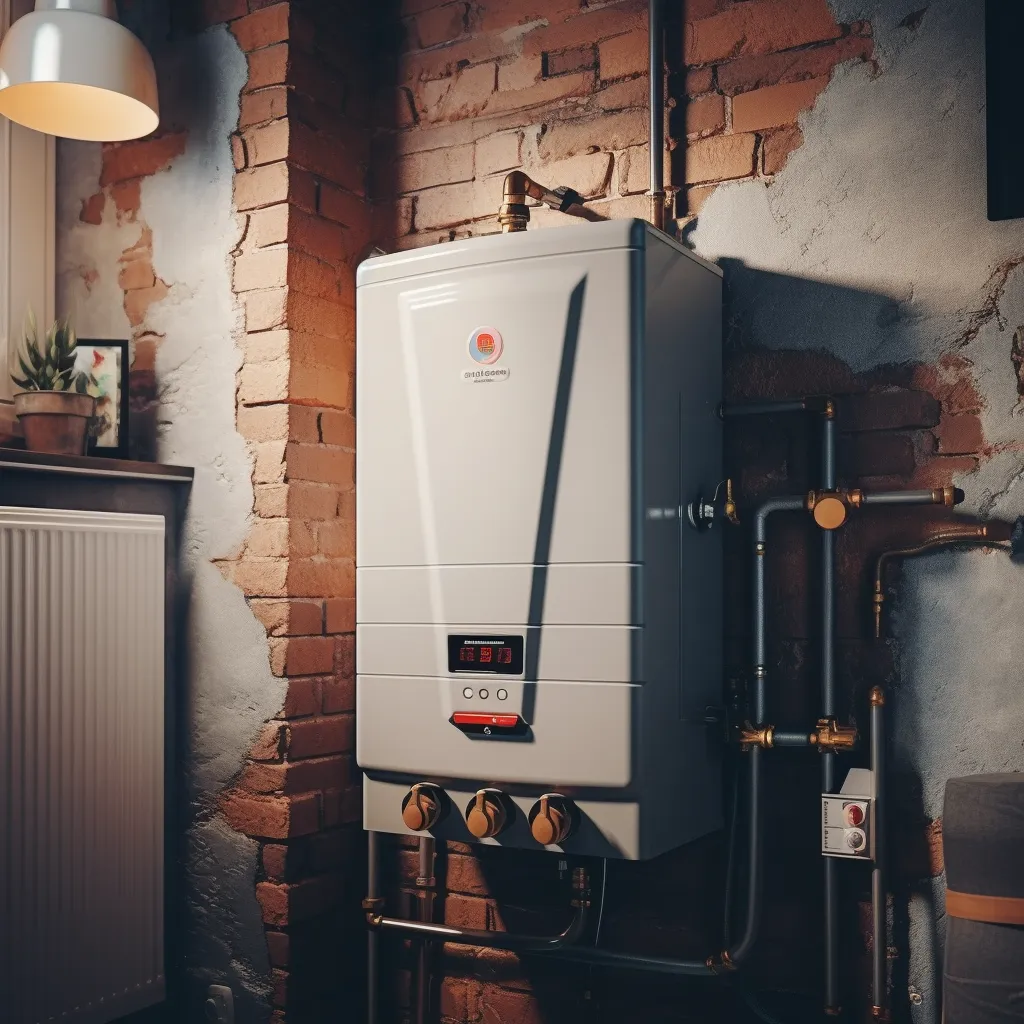
A reliable professional will be able to:
Looking for water heater services? Look no further. Our comprehensive services include:
Expert evaluation of your water heater to determine if a repair or replacement is needed.
Transparent cost estimates that factor in labor, materials, and taxes.
Guidance in choosing the best water heater for your needs, considering size, efficiency, and price.
Hassle-free installation process, from removal of the old to setup of the new.
Quality assurance with warranties on both workmanship and parts used.
Trust us to meet all your water heater needs.
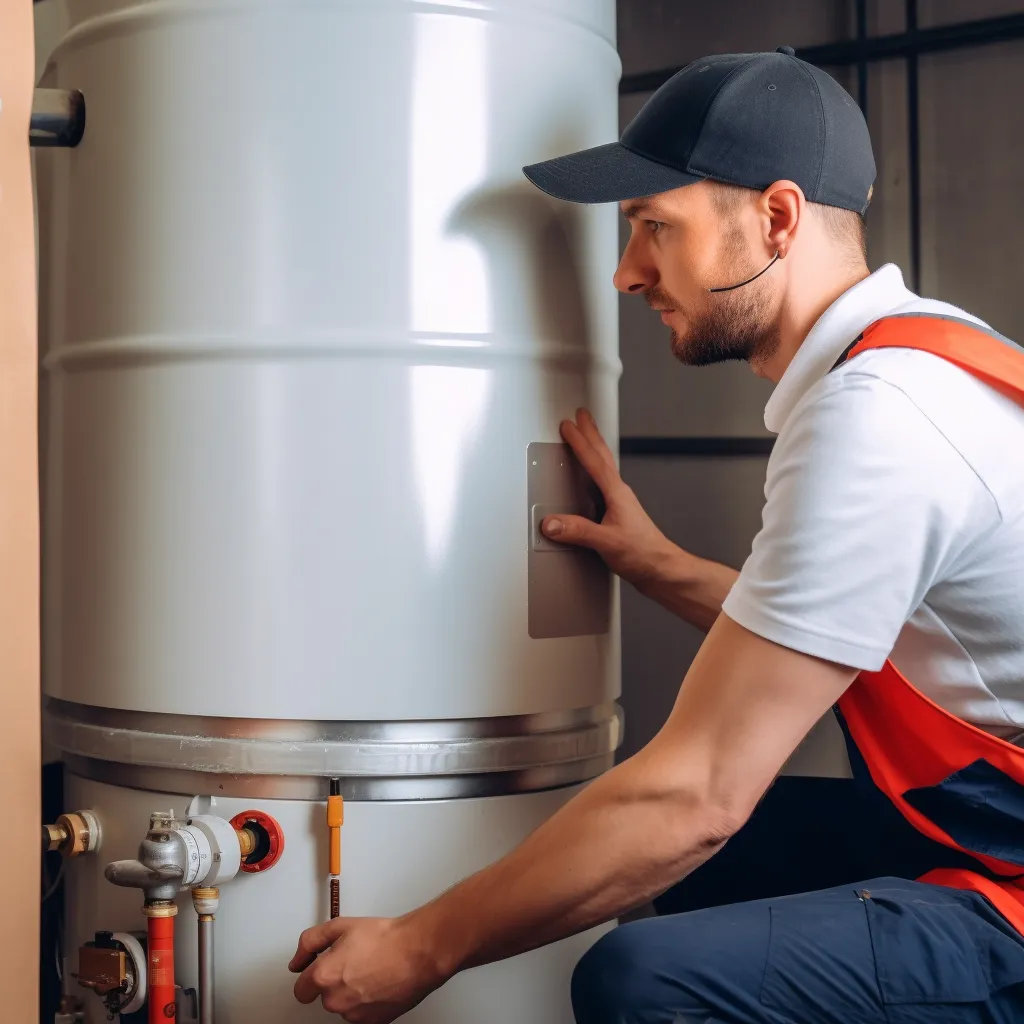
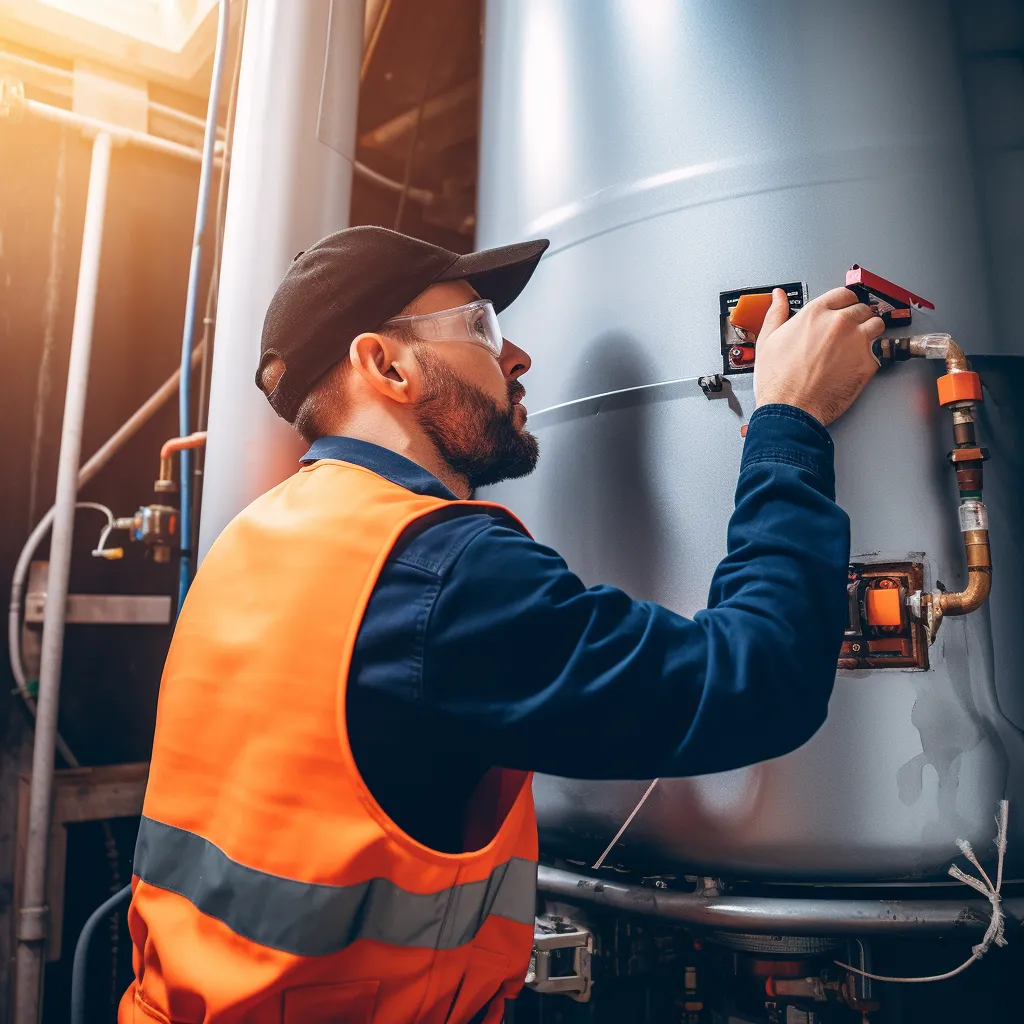
Water heaters don't last forever
Don't let your water heater die prematurely - understanding when to replace or maintain it is key. Depending on usage and efficiency, you can expect a lifespan of 6-12 years. But when it's time for a new one, determining what to buy and all related costs can be daunting. Consider factors such as type, size, installation and maintenance fees, as well as rebates, incentives, and extended warranties for energy-efficient models. Need help choosing? Research and compare different types of water heater models, or consult with a licensed professional to save time and money in the long run.
Ready to Solve Your Plumbing Needs?
For reliable, expert plumbing services tailored to the needs of Lake Worth and its neighboring cities, look no further than D&S Plumbing Inc. We’re here for you 24/7, ensuring that your plumbing is always in top condition.
Call us today to schedule your service!
Business Hours: Monday - Sunday, 24 Hours
Phone Number: (561) 823-2535
Location: Central Lake Worth, FL, serving all surrounding areas.
Trust your local experts at D&S Plumbing Inc. for professional, timely, and efficient plumbing solutions.
GET IN FULL TOUCH
PHONE: (561) 823-2535
EMAIL:
david@waterheaterlakeworth.com
D&S Plumbing Inc
Lake Worth, FL 33462
